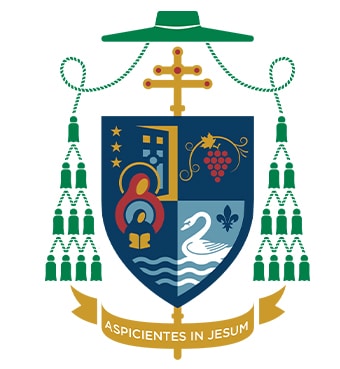NC Register Publishes Al’s Commentary on Jody Bottum
Are We on the Right Track in the Fight for Marriage?
COMMENTARY: Joseph Bottum’s Essay Critiquing the Church’s Current Efforts Against Same-Sex ‘Marriage’ Raises Questions Worth Considering.

This Bottum controversy was framed badly from the start. It was never about fidelity or infidelity to Church teaching. The Commonweal article was badly subtitled as “a Catholic’s case for gay marriage.” It clearly was not. The New York Times claimed that Bottum did not think Catholics were bound by natural law to oppose same-sex “marriage.” False. He thinks “thin” versions of natural law have rightly failed to persuade. Authentic natural-law teaching does require us to teach against “gay marriage.”
I had the advantage of interviewing Bottum immediately after the essay’s publication and asked him if he had changed his fundamental theological or moral view on “gay marriage.” He assured me, in no uncertain terms, that he had not. He still agrees with the Church: that marriage is between one man and one woman.
Bottum’s essay was always about assessing the culture’s response to our stalled efforts, legally, ecclesially and socially, to defend traditional marriage.
He admits that his style and expression contributed to the widespread misunderstanding of his essay. But blaming Bottum distracts us from two daunting rhetorical problems about our current situation related to same-sex “marriage” and the defense of traditional marriage.
First, “gay marriage” hasn’t yet been tried or tested. It is fresh and unblemished, and this allows Americans to fantasize about how fine it will be for homosexual persons. Christian marriage or some semblance of it, on the other hand, has been tried and incrementally redefined by heterosexual persons seeking easy divorce and remarriage, contraception, abortion, adoption for unmarried couples, toleration of deadbeat dads and the promiscuity that leads to nearly half of our nation’s children being born out of wedlock.
The Christian community that claims to be the defender of God’s design for marriage has consistently cooperated with, or, at least has been unable to resist, the cultural pull that has defined civil marriage deviance downward. What is it that we are now defending in civil marriage?
How to build a visibly Christian marriage alternative formed by sacramental rather than civil awareness and which better provides for family flourishing: This is the task of the next generation of Catholic activists, pastors and social critics.
Read full commentary here






